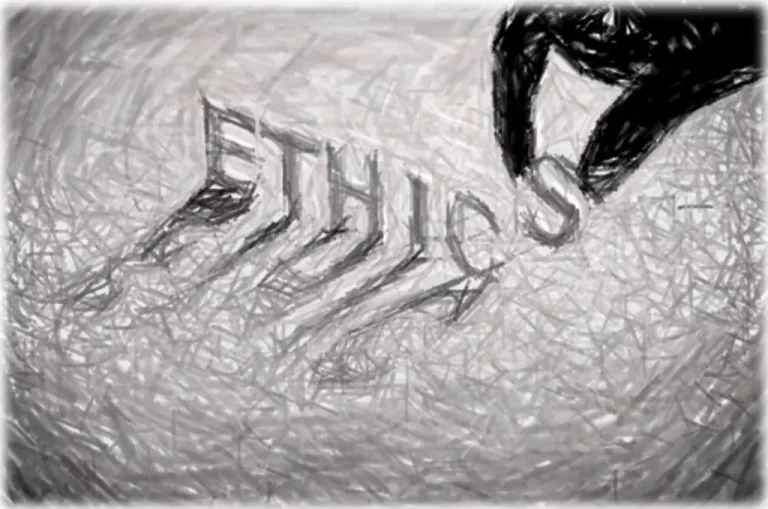network menu
The Ethics Lab (formerly known as “The Ethics Collective”) is an initiative launched in 2021 and aiming to offer resources and peer-support to anthropologists and scholars of cognate disciplines who face ethical challenges before, during and after fieldwork which involves cognitively impaired older adults.
The idea of the Ethics Lab grows out of the recognition that there are increasing institutional and ethical difficulties in involving older adults in ethnographic research, especially those with diminished capacity to consent. In some countries, research ethics is regulated by governing bodies outside our discipline, with lack of adequate support given to scholars, especially early in their career, to conduct such research. While difficulties that these ethnographers face range from tight (and often counter-productive) bureaucratic barriers in some settings, to the lack of specific regulations and ethical guidelines in others, what remains a troubling constant is that the researchers are left to deal with these ethical challenges on their own. Across the globe, not only do researchers not receive efficient support from their respective institutions but also they struggle to find colleagues who have encountered similar difficulties and who might offer guidance and practical support. In this context, a strand of academic literature, coming especially from the countries with tightly regulated “procedural ethics”, has highlighted some of the difficulties faced by ethnographers as they go through the process of ethics approval. However, as some critics argued, these difficulties have been framed as anecdotal rather than systemic issues. Moreover, by narrowing down the debate on ethical issues to the researchers’ difficulties with ethics committees, this strand of literature reinforces rather than merely interrogates the impact these committees have on ethnographers “doing ethics”. Produced in, underpinned by and responding to the normative categories from the “Global North”, this literature involuntarily contributes to further colonization of anthropological discourse about ethics, ignoring critiques and frames of reference of colleagues from the “Global South” as well as other peripheralized anthropological allies.
What we do?
The term “lab” in the name of our initiative suggests two things: on the one hand, a shared space of stirring up ideas, and ethical experimentation; on the other, taking upon medical anthropologist Cheryl Mattingly’s idea of “moral laboratories”, we aim this shared space of peer-support to lead to a form of ethical experimentation that improves the practice in our discipline.
In recent years, the community united around the Ethics Lab, has published a Special Issue entitled “Ethical Concerns: Envisioning Ethnographic Fieldwork with Cognitively Impaired Older Adults” (Journal of Aging Studies) and organized a number of panels and a workshop (see here). Currently, the Ethics Lab aims to continue to provide space for knowledge exchange and community support. This includes:
- creating a forum/mailing list for discussion and peer-support;
- creating a space where participants share brief case studies of some of the issues they faced, and how (and if) they have been solved. The case studies will be made available to the wide public on the initiative’s page;
- creating a public repository of publications on ethics in ethnographic research with older adults in general, and of those with diminished capacity in particular;
- disseminating the Ethics Lab’s mission and objectives within the EASA and among other relevant networks and associations.
- regular organization of workshops;
- potentially developing conference proposals/publications which speaks to the collectively identified interests of the initiative members.
Ethics Lab and AgeNet
By integrating the Ethics Lab into the broader structure of the EASA’s Age and Generations Network (AgeNet), we highlight this network’s crucial role in, and responsibility for, improving the ways in which ethnographic research involving cognitively impaired older adults is done and regulated in Europe and beyond. Our collaboration with AgeNet is also an expression of our commitment to render the space of Ethics Lab sustainable, inclusive and capacious of holding tensions that often arise when doing and re-imagining research ethics. Indeed, we take these tensions as an opportunity to improve our ethnographic practice and to reinstate our responsibilities towards the research participants, our colleagues and institutions that fund and coordinate our research. The Lab is a space organized by and for anthropologists and other ethnographically-oriented researchers. Our flexible, iterative and transparent forms of rotative governance aim to render the Ethics Lab not only sustainable but also radically inclusive and highly responsive to the constantly evolving ethical frameworks within which anthropological research with cognitively impaired older adults is embedded.
Join us!
We constantly look for new members willing to take the lead in bringing the Ethics Lab’s projects to life and to contribute to the strengthening of the Lab’s critical approach and collaborative ethos. Committed to the project of decolonizing anthropological debates about ethics, we especially invite researchers working in the institutions in the Global South as well as those with lived experience of living with cognitive impairment and/or caring roles. If you want to get involved, please get in touch with us.
The Lab’s Founding Members:
Cristina Douglas (University of Edinburgh), Matthew Lariviere (Northumbria University) and Barbara Pieta (Max Planck Institute for Social Anthropology)
Ethics Lab Events
